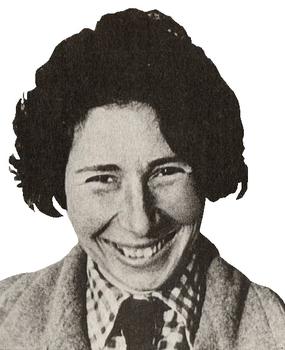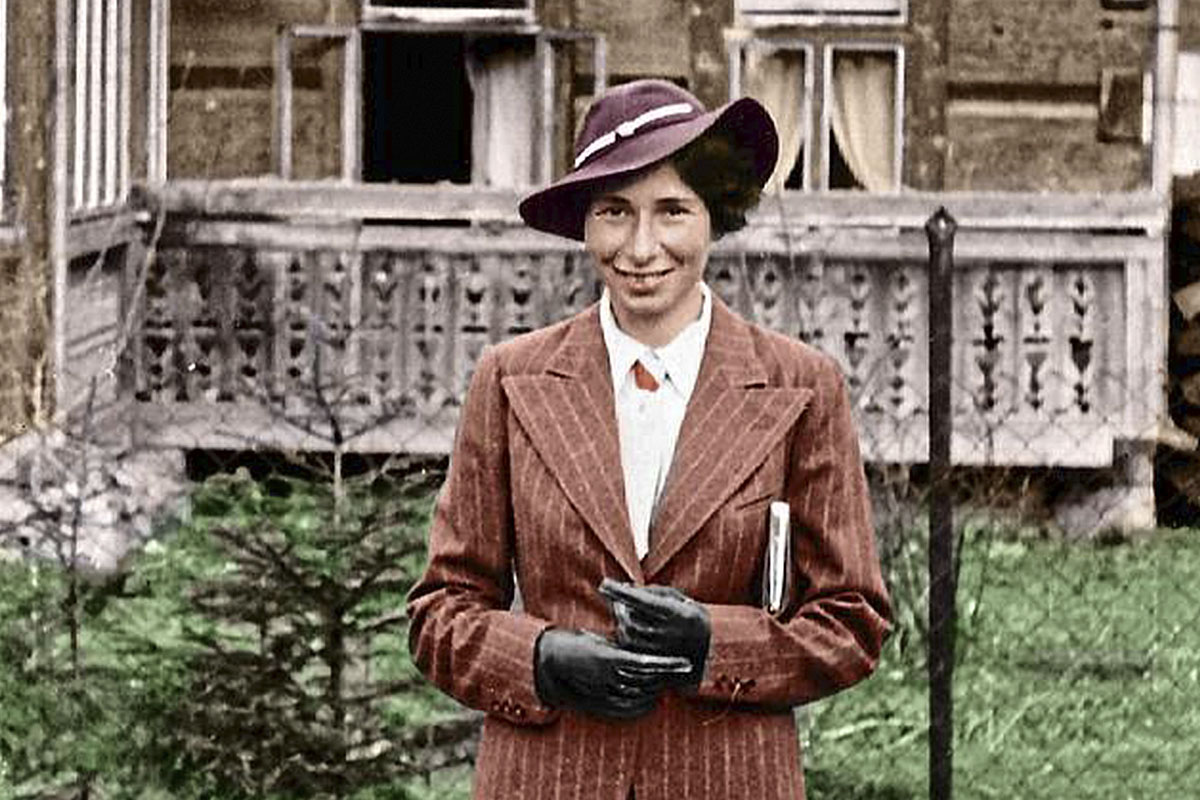Plenty of adages apply to Ursula Kuczynski, a Russian agent who lived masquerading as a sedate Cotswold village wife and mother in the midst of the English countryside. “Don’t judge a book by its cover.” “Politics and sex make strange bedfellows.” And of course, “First impressions are not always correct.” In Ursula’s case, everyone’s first impression could not have been more wrong.
Others in the quaint hamlet of Great Rollright in the Cotswolds thought her to be a nice married lady who loved baking and raising her three children with her husband, Len.

They saw her riding along on her bicycle on her way to the baker’s shop in the years following World War II, and in spite of a faint European accent, thought she was just another woman coping with the deprivations of life after the war who enjoyed a quiet existence in the village.
But looks can be deceiving, and in reality Mrs. Beurton was anything but a quiet, sedate lady just like all her neighbours. She was, in truth, a Russian spy, a colonel fiercely committed to the cause of communism who was born in Berlin in 1907.
She fought fascism mightily during the war and hated what Hitler had done to her home country. In fact, her name was on a list of targeted people in Nazi Germany, and so she could not settle there again once war broke out.

She had carried out espionage assignments in China, Poland and Switzerland, not only as a courier but also as a bomb maker and other actions that won her attention and praise from the Soviet Red Army.
When the war ended and the Cold War began, Moscow assigned Kuczynski to head to Britain and spy on England and America, in order to obtain whatever news she could of those countries’ work on the atomic bomb, so the Soviet Union could build one of its own.
It was in China that Kuczynski first became a spy. She had been raised in a fervently leftist home in Germany, and became even more dedicated to the cause when she settled in China in 1929 with her first husband, and watched revolution unfold all around her.
Once settled in England with her second husband, whom she met in Switzerland, she worked hard for the Soviets. As an experienced and knowledgeable radio technician, she was able to pass along secrets and information on the transmitter she built in her home’s outhouse, or “outdoor privy,” as the English referred to them.
It was a safe bet that her neighbours didn’t go peeking inside, and so had no idea what Ursula, code named “Sonya” by the Russians, was actually up to.
Nor did they know of the many lovers she had along the way before settling in Great Rollright. Her trysts are the stuff of romance novels, and now they have been captured and detailed in a new book by author Ben Macintyre, entitled “Agent Sonya.” The book is for sale on Amazon.

Ursula fell in love several times outside her first marriage, with both men and women, or, at least, one woman in particular – a rabid revolutionary who convinced Ursula to begin her career in the spying.
At the same time, she had a home, husband and one son, giving the impression of being little more than a cultured, refined housewife who did nothing but give grand parties and devote herself to her child.
Under that calm, placid exterior, however, this woman lived a life replete with danger and daring escapades, a life on the edge in which she came very close to capture and execution. Had she been discovered in Poland, no doubt the Germans would have sent her to the gas chamber.
Later, when spying on the British and Americans, she would have been sent to prison and perhaps never been freed. Ultimately, Ursula returned to Berlin, which is where she died in 2000, at 93 years old.
Even historians who disagree with her political opinions and actions on behalf of Stalin and the Soviet Union have come to grudgingly respect Ursula for her cunning, her wits, and her bravery.
Another Article From Us: Boudicca revolt this Essex Dig reveals Shows ‘evidence of Roman reprisals’
Though they dismiss her efforts as misguided and sometimes outright wrong, they know she acted from a belief that communism could make the world a better, more equitable place.
